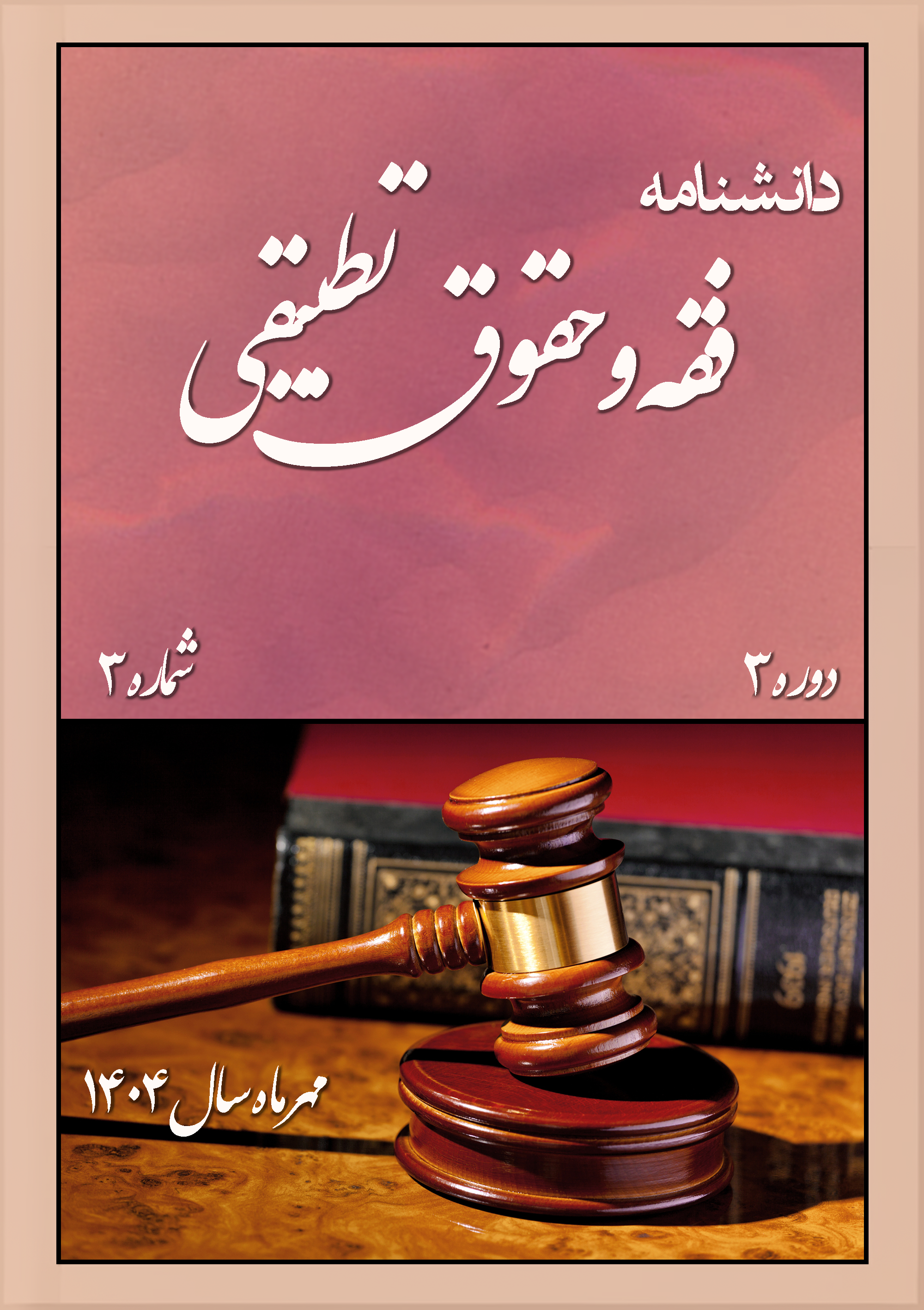تحلیل کارآمدی کیفر قصاص با رویکردی آسیبشناسانه به سیاست کیفری قضایی ایران
کلمات کلیدی:
قصاص, سیاست جنایی قضایی, سیاست جنایی تقنینی, چالشهای حقوق بشری, اطاله دادرسیچکیده
قصاص به عنوان یکی از محوریترین نهادهای حقوق کیفری اسلام و سیاست جنایی ایران، با فلسفۀ بازدارندگی، تحقق عدالت و حفظ حیات جامعه تبیین شده است. با این حال، اجرای این مجازات در عمل با چالشها و آسیبهای جدی مواجه است که کارآمدی آن را تحت تأثیر قرار میدهد. لذا، هدف این پژوهش، آسیبشناسی اجرای مجازات قصاص در بستر سیاست جنایی قضایی ایران و تحلیل چالشهای تقنینی و قضایی پیش روی آن به منظور ارائۀ راهکارهایی برای برونرفت از وضعیت فعلی است. روش پژوهش توصیفی-تحلیلی بوده و از روش کتابخانهای استفاده شده است. یافتههای پژوهش نشان داد که سیاست جنایی ایران در قبال قصاص از دو منظر تقنینی و قضایی دچار آسیب است. در حوزۀ تقنینی، چالشهایی نظیر فقدان نظام منسجم تنقیح قوانین و ابهام در برخی مواد قانونی، و در حوزۀ قضایی، آسیبهایی چون اطاله دادرسی، ناهمگونی در اجرای مجازات و تعارض با هنجارهای حقوق بشری، کارآمدی این نهاد کیفری را با چالش مواجه ساخته است. با توجه به آسیبهای شناساییشده، نتیجهگیری میشود که برای کارآمدسازی سیاست جنایی مرتبط با قصاص، نیاز به یک رویکرد جامعنگر وجود دارد. پیشنهاد میشود ضمن حفظ مبانی فقهی، از طریق اصلاحات تقنینی، ارائۀ آموزشهای تخصصی به قضات، ترویج فرهنگ عفو و بهکارگیری ظرفیتهای عدالت ترمیمی، اثربخشی این مجازات افزایش یابد. نوآوری این پژوهش در ارائه یک چارچوب آسیبشناختی یکپارچه است که چالشهای اجرای قصاص را به صورت همزمان در دو سطح تقنینی و قضایی تحلیل میکند.
دانلودها
مراجع
Ardabili, M. A. (2014). General Criminal Law, Vol. 3. Mizan Legal Foundation.
Khosrowshahi, S. H. (2001). Criminal Law and Criminology. Council for the Expansion and Planning of Higher Education.
Mirhosseini, S. H. (2008). The Abatement of Qisas. Mizan Publishing.
Mohammadi Jourkouyeh, A. (2015). Is the Right to Qisas Optional or Determinative? Islamic Law Journal.
Najafi Abrandabadi, A. H. (1996). UN Criminal Policy. Legal Research Quarterly, 1(18).
Safaei, H., & Bakhoda, D. (2019). Strategies for Reducing Delay in Civil Proceedings. Biannual Journal of Human Sciences Development.
Sarikhani, A., & Mirzaei Moghadam, M. (2015). Gradational Retribution in Crimes Below Homicide. Teachings of Criminal Law.
دانلود
چاپ شده
ارسال
بازنگری
پذیرش
شماره
نوع مقاله
مجوز
حق نشر 2025 احمدرضا خطیبی

این پروژه تحت مجوز بین المللی Creative Commons Attribution-NonCommercial 4.0 می باشد.










